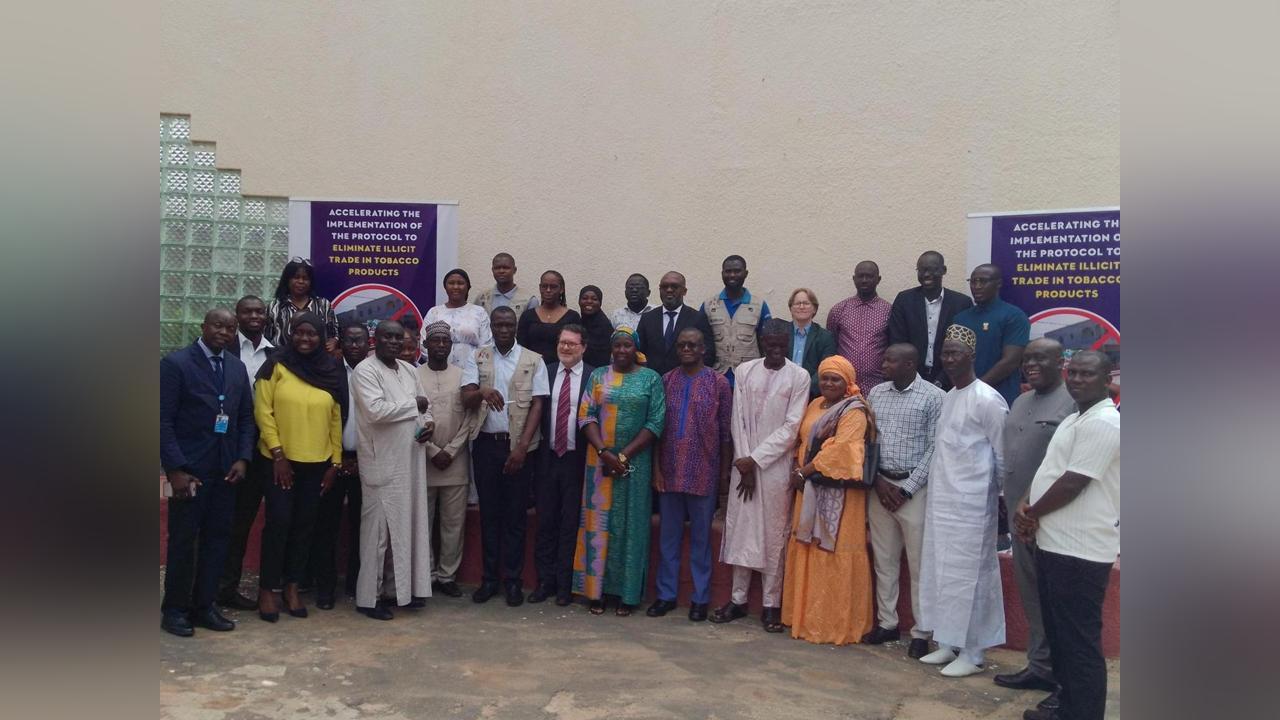Africa-Press – Gambia. The Directorate of Non-Communicable Diseases under the Ministry of Health on Saturday concluded a five-day national workshop aimed at accelerating the implementation of the Protocol to Eliminate Illicit Trade in Tobacco Products.
Held at Ocean Bay Hotel in Bakau, the event organised under the theme “Stop Illicit Trade in Tobacco Products – The Gambia is Committed,” brought together a wide range of stakeholders including officials from the Ministry of Health, representatives from the World Health Organisation (WHO), and civil society organisations.
The initiative underscores The Gambia’s growing efforts to strengthen tobacco control measures and align with global frameworks under the WHO Framework Convention on Tobacco Control (WHO FCTC).
During the opening ceremony, Dr Nathan Nsubuga Bakyaita, WHO Representative to The Gambia, highlighted the country’s pressing need to intensify tobacco regulation. He revealed that tobacco use contributes to 3.3% of all annual deaths in The Gambia and poses a significant economic strain, costing the nation approximately D415.8 million annually in healthcare and productivity losses.
“Tobacco use remains a significant public health and economic challenge in The Gambia. As of 2022, an estimated 9.1% of teenagers aged 15 and above were smokers, 18% of men and just 0.4% of women while 1% used smokeless tobacco products.”
He said the illicit trade in tobacco products undermines public health policies and fuels the tobacco epidemic by making tobacco products more accessible and affordable.
In 2020, he added, the introduction of a specific excise tax on tobacco products generated $6.3 million, highlighting the dual health and revenue benefits of effective tobacco control policies.
He called for a stronger inter-agency coordination, enforcement, and regional collaboration.
Dr Yusupha Touray, PS1 at the Ministry of Heealth said tobacco use remains a major contributor to disease and premature death.
He said the illicit trade in tobacco products only worsens this burden.
“It puts cheap, unregulated tobacco in the hands of the population and weakens the impact of the national tobacco control laws and policies. This effort is part of The Gambia’s wider campaign to battle non‐communicable diseases (NCDs)—such as cardiovascular disease, cancer, chronic respiratory disease, and diabetes—which are fueled by tobacco use.”
Dr Touray reaffirmed The Gambia’s full commitment to “stop illicit trade in tobacco products” and confirmed plans to ratify or further deepen its national enforcement measures. ́
“Key priorities outlined include: Legal alignment with protocol obligation integration of tracking systems into national customs and regulatory frameworks Strengthened cooperation with border control, police, and judiciary Public and stakeholder awareness campaigns”.
The health officials also expressed strong political will to implement the protocol, which seeks to curtail the smuggling and illegal distribution of tobacco, often linked with organised crime and tax evasion.
The workshop concluded with a shared commitment to enhance enforcement mechanisms, promote cross-border cooperation, and increase public awareness about the dangers of illicit tobacco trade, in line with The Gambia’s broader national health priorities.
For More News And Analysis About Gambia Follow Africa-Press






